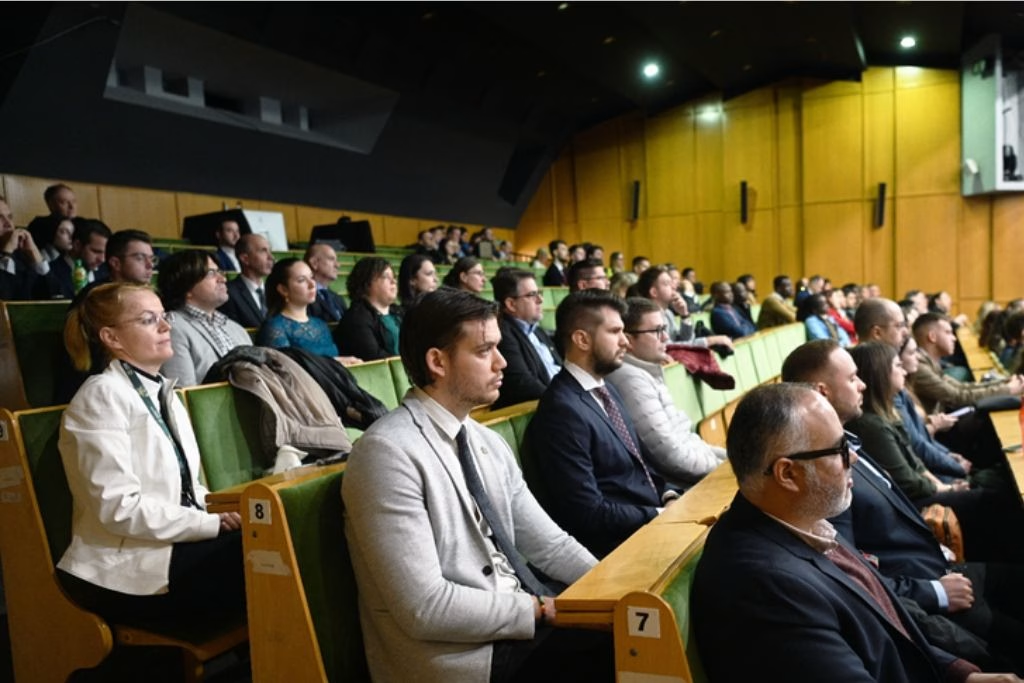
Analyzing Hungary’s Economic Landscape and Future Challenges
The University of Debrecen recently hosted an influential conference focused on the current state and future challenges of Hungary’s economy. With a diverse lineup of experts, PhD students, and international participants, the event provided comprehensive insights into the factors shaping Hungary’s economic trajectory. This article explores the key discussions and findings from the conference, emphasizing recent trends in Hungary’s economy, inflation, and strategies for sustainable growth.
Understanding the Current State of Hungary’s Economy
Hungary’s economy has experienced notable fluctuations over recent years, with notable challenges such as inflation spikes and geopolitical uncertainties influencing growth prospects. According to Gergely Baksay, Managing Director responsible for economic and budget analysis at the Hungarian Central Bank, the economy faced a contraction of 0.8% in 2023, reflecting broader global economic pressures and domestic issues alike.
Despite such setbacks, the Hungarian monetary system remains resilient, demonstrating a high degree of stability amid recent crises. This stability is crucial for maintaining investor confidence and ensuring the country’s economic resilience against external shocks. However, ongoing concerns about inflation, public debt, and the long-term sustainability of growth strategies remain central to policymaker debates and academic discussions.
Inflation Trends in Hungary and the Global Context
One of the conference’s focal points was inflation, which surged globally during the past few years, reaching levels unseen since the 1970s. Over 70 countries experienced inflation rates exceeding 10%, eroding real incomes, suppressing consumption, and hampering investments. Experts at the event highlighted that while inflation may be waning, its long-lasting effects continue to influence economic behavior in Hungary and beyond.
Baksay stressed that persistent inflation can derail economic stability and growth if not effectively managed. Therefore, policymakers must adopt cautious yet proactive measures to prevent a resurgence, including inflation targeting and supportive monetary policies. The experience of the 1970s serves as a stark reminder of inflation’s stubborn persistence and the need for vigilant economic management.
The Role of Megatrends in Shaping Hungary’s Economic Future
Another critical discussion point involved ‘megatrends’—large-scale societal and economic shifts expected to redefine the landscape over the next decades. The conference underscored the importance of key megatrends such as high national debts, digitalization, demographic aging, and the green transition.
Hungary, which has an increasingly open economy, must adapt its growth model to these megatrends. Instead of relying on extensive, resource-intensive growth, the focus should shift toward an *intensive* growth approach that enhances domestic value creation. Baksay pointed out that while exports are vital, their current contribution to Hungary’s GDP is limited by the low domestic added value. Strengthening this aspect could lead to higher income levels and social standards.
More than a thousand innovative and rapidly growing Hungarian companies have demonstrated that transformation is possible, signaling opportunities for increasing domestic value and competitiveness.
Strategies for Sustainable Growth and Development
To foster sustainable growth, Hungary needs to diversify and deepen its economic structures. One vital aspect is increasing the domestic added value of exports, which would not only boost GDP but also improve employment and wage levels. The conference highlighted success stories of companies leveraging innovation and technology to accelerate growth and adapt to changing global markets.
Furthermore, the conference emphasized the importance of policy frameworks that support R&D, digital infrastructure, and education. Investing in human capital and technological development are crucial steps toward positioning Hungary as a competitive player within the EU and global markets.
Addressing Population and Political Risks
The roundtable discussions shed light on broader risks facing Hungary’s economy. Professor Róbert Magda discussed challenges related to demographic decline and inflation, both of which could slow economic growth if not addressed. The aging population poses long-term issues for labor supply and social services, requiring targeted policies to encourage higher birth rates and fair immigration policies.
Additionally, political polarization and global geopolitical tensions, including the phenomena of hyper-globalization ending and regional conflicts, pose risks to stability and growth. As László Erdey noted, increased political uncertainty could further hamper investor confidence and economic momentum.
Future Outlook and Policy Recommendations
The conference concluded with a call for practical policy measures to ensure Hungary’s economic resilience. These include:
- Enhancing domestic value-added activities and supporting innovative enterprises;
- Implementing effective inflation control mechanisms to sustain price stability;
- Investing in digital infrastructure and human capital to leverage megatrends;
- Developing policies that mitigate demographic and political risks.
By adopting these strategies, Hungary can navigate the complex landscape of global and domestic challenges, fostering an environment conducive to sustainable economic growth.
Curious About Studying at the University of Debrecen?
Start your academic journey in Hungary with confidence. The University of Debrecen offers a diverse international community and strong academic programs. Studygram is here to help you every step of the way — from exploring your options to submitting your application. Fill out the form to get personalized support and take the first step toward your future.

